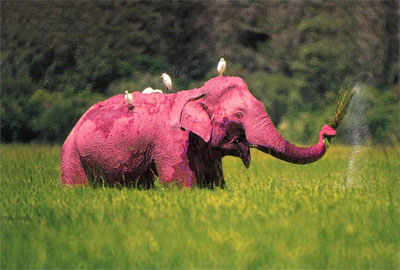Poems are words written in verse form - sometimes with a lyrical rhyme and at other times it doesn't rhyme or it has a very brutally harsh flow.
Below is a poem by one of my favourite poets, Rabindranath Tagore:
PAPER BOATS
Day by day I float my paper boats one by one down the running
stream.
In bid black letters I write my name on them and the name of
the village where I live.
I hope that someone in some strange land will find them and
know who I am.
I load my little boats with shiuli flower from our garden, and
hope that these blooms of the dawn will be carried safely to land
in the night.
I launch my paper boats and look up into the sky and see the
little clouds setting thee white bulging sails.
I know not what playmate of mine in the sky sends them down
the air to race with my boats!
When night comes I bury my face in my arms and dream that my
paper boats float on and on under the midnight stars.
The fairies of sleep are sailing in them, and the lading ins
their baskets full of dreams
Pay attention to the imagery and meaning constructed through the imagery and ask yourself
"What emotion is the poet trying to evoke here? What is the message he is trying to pass across?"
When writing poetry,
Firstly, you have to make sure of the message you are trying to put across.
Secondly, you have make sure that the imagery, choice of words and tone is consistent with the message you are trying to put across.
Always try to refrain from using cliched imagery, such as, your lips are as red as a rose.
The writing mantra is very simple:
SHOW, NOT TELL
For instance, instead of saying that "She looked tired", write:
Her shoulders were bent from the days' weariness;
her makeup washed away by perspiration, and her
eyes were dark and soulless, as if the city had drained from her,
her breath, her life, the essence which made her whole."
Below is a poem I wrote sometime back, right after the Tsunami hit Japan earlier this year:
"Lost City
This inky midnight blanket
is cold to touch, slippery cool
as it brushes through my hair
and kisses my face. Waters tinkle
at my feet like bells, wetting my hem
with their mayhem, glistening
like silverfish under the enchantment
of the moon.
A golden man riding a golden chariot;
Streaks of of pink, blue and green
that disappear into an endless stream;
a soundless song riding on the back of
a thunderous storm; purple pixies who
live in bluebells; a palace carved from light;
and a demon woman mourning
the fate of her late mate.
Clocks running faster than light;
Cities that camouflage itself
according to the current politicians;
miniature men digging deep into one's soul;
a treasure map to heaven lying dusty
on the road; books discarded along with
Testaments; birds falling like acid rain;
golden walls overgrown with blood-red vines;
Rivers dyed black with ignorance and scorn;
Lightning crashing like Titans in the sky,
A vast battlefield becoming grey in decay -
And a woman bleeding for the first time.
Despair, in furry hats, knocking on doors;
A child with silver hairs, gaunt with regret,
Men in coats in their concrete towers,
Women in short dresses with waxy faces,
A heart mowed over, a God thrown over;
Empty houses and empty spaces,
Hollow eyes and hollow cheeks, hollow smiles
and a waning soul.
And a woman violated by Faith,
Deceived by Fate, pregnant
with Disilussionment.
The die is cast- Chance playing his last game.
Like a vise, words bind you to the ground.
Like ghosts walking down the street, laughing.
Like smoke, the city is rotting.
A child torn from a mother's womb;
Hearts grown mouldy in soggy ground.
And a woman burying a dead son.
Red sunsets, grey sands,
The waters no longer play at my feet.
I'm waiting for you to pull tightly
into your embrace and drag me to your
murky depths so that I may, finally,
slumber in peace, leaving behind the deeds
they wrought with my hands, the words
they uttered through my lips, the body they
plundered; with twin gifts of Sin and Malice.
A woman laments, wailing into the night.
She is dead, and seeking her lost soul.
The night is young, and the moon playing truant.
Perhaps another night, the moon shall shine for her.
Perhaps another night, there won't be another day."
I have to apologise for the length of the poem, but I am very fond of writing lengthy poems.
I am not going to explain the poem, but Ido think that the imagery I wrote here is useful in terms of showing how imagery can be used to create meaning.
I also used one of my own works to illustrate my point that Malaysian youth are capable of writing powerful poetry, that is able to politicise and problematise an issue.
But as this post is lengthy enough, I will leave that for another time.
Ciao, and till next time,
With all my love,
L.














